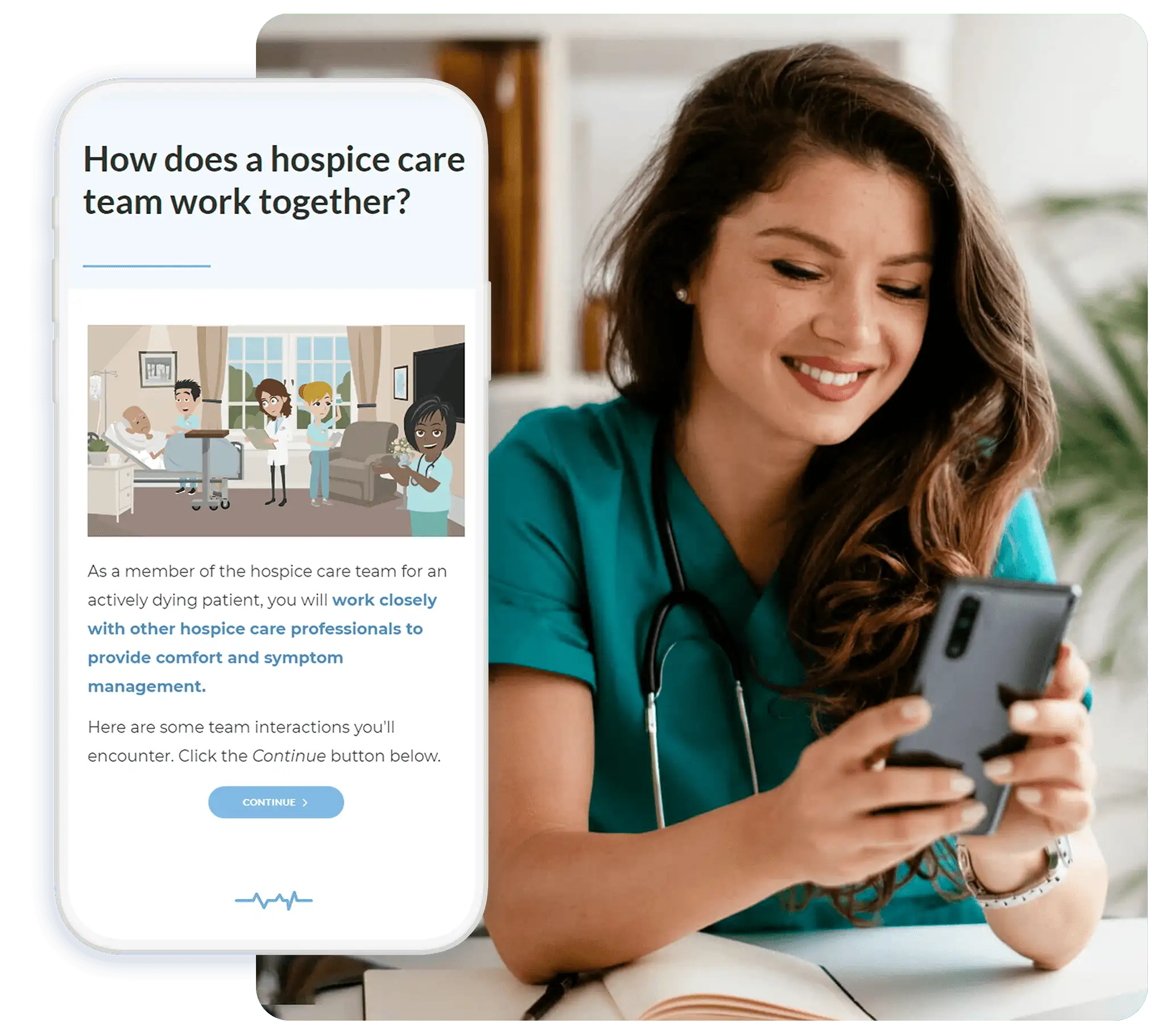Basics of a Hospice Volunteer
Hospice Volunteers
Throughout the history of the hospice movement, volunteers have played an integral role in the delivery of care to patients and families as well as in every aspect of organizational operations. In fact, according to the Conditions of Participation for a hospice program, volunteers must be used in day-to-day administrative and/or direct patient care roles.
Today, the role of the volunteer in most hospice programs is continuing to expand beyond the standards as hospices broaden and redefine the scope of end-of-life care. Never has it been more important to have a comprehensive orientation and training program that equips volunteers with the knowledge, skills, and attitudes they need to excel in the many roles they play.

CONTINUA LEARNING
Simplify Your Hospice Team’s Training and Skill Building
A complete solution for your agency: more than 125 hospice courses, caregiver in-services, training plans, and more.
CoPS 418.78 (b) Roles: Volunteers must be used in day-to-day administrative and/or direct patient care roles. Qualified volunteers who provide professional services for the hospice must meet all requirements associated with their specialty area. If licensure or registration is required by the State, the volunteer must be licensed or registered. The hospice may use volunteers to provide assistance in the hospice’s ancillary and office activities as well as in direct patient care services, and/or help patients and families with household chores, shopping, transportation, and companionship.
Hospice Volunteer Orientation
The Hospice Conditions of Participation (CoPS) also mandate that hospices provide, maintain and document volunteer training that is consistent with the specific tasks that volunteers perform. Most hospices provide basic, or initial volunteer training as well as patient and family volunteer training. In addition, some hospices provide specialty volunteer training based on the programs and services offered by the hospice and the needs of patients, families, the bereaved, the community and available resources. Hospices provide these trainings to meet the CoPS, but more importantly they provide the training to assure volunteers have the needed skills to provide optimal comfort and support as well as enhance the quality of life for the patients and families they serve.
If you found this article informative and useful share it with your friends and colleagues.
